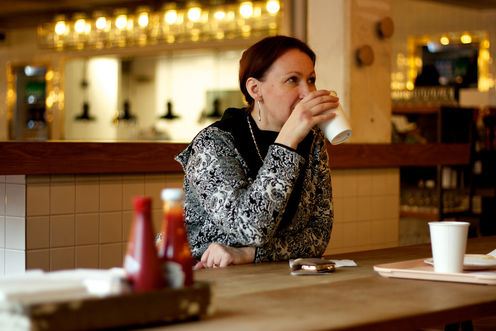
More than 7% of Western women choose not to have children. Alexander Baxevanis/FLickr, CC BY
Selfish, damaged, cold-hearted, shallow, overeducated and greedy. Women who choose not to have children are often labelled in these ways by everyone from the Pope to their co-workers.
Australian women experience marked social exclusion if they choose to remain childless – and it’s the choice part of the equation that leads to their deviant status. While all childless women experience some exclusion, women who have rejected the traditional ideal of motherhood are at the greatest risk of social disconnection. It is the very act of making a conscious and public choice to reject the role of mother that is overtly or tacitly criticised.
The so-called lifestyle pages are full of articles by women trying to redress and reclaim the dialogue around the choice not to have children. These narratives and other contemporary writings on the choice to remain child-free parallel the research and challenge the dominant story that women who choose not to have children hate little people, want to save money and can’t give up their holidays.
The research evidence tells a different tale. It’s not children childless women hate, or even the terrible cost of having children, the lack of available childcare, parental leave or the loss of superannuation that’s taking up the lion’s share of their decision. Instead, it’s the degraded state and overinflated expectations of motherhood most are not keen on. And, of course, some women simply want a different kind of life.
Several recent studies point to an increased social acceptance of women who choose to remain child-free in societies with greater gender parity. In other words, the larger the space women can occupy, the more opportunity there is for a variety of life choices for women. In places where women have greater power, there is less policing of the role of mother and room for a more inclusive view of how to be a woman.
Women who are childless by choice often mother in other ways, ways that can go unrecognised by all but those who benefit from them. They step mother, allomother (where women other than the mother help take care of the child), actively aunt or foster. Anyone who has ever shared the burdensome role of parent or been mothered by such a voluntary mother will understand how desperately necessary this kind of mothering is.
The fascinating story of voluntary childlessness is really no different from the story of all women who have fought to gain a measure of control over their fertility. While the reasons women choose not to have children are in some ways complex, more than 7% of Western women are making this choice. This proportion has increased significantly over the past 30 years. And more women are making this decision as their ability to do so with less censure increases.
But not all women are able to choose. Just over 40% of pregnancies worldwide are unplanned and many of those are also unwanted. There are a myriad of reasons for this staggering number, including access and adequacy of contraception, domestic violence, social pressure and misinformation. The choice to limit fertility is very much still an ideal rather than a reality for many women.
If you step back from the picture painted by the research and personal dialogue about women’s voluntary childlessness, what stands out is how hard it still is for women to be truly free to make choices about whether or not to have children. The rhetoric around childlessness, like the often degraded conversations about abortion, older mothers, young mothers, lesbian mothers, single mothers (the list goes on), continues to pit woman against woman in a effort to keep the definition of woman as narrow as possible.
The experiences of women who choose not to have children play a key part in understanding how our choices as women have the power to define who we are. And our degree of freedom to make those choices tells us something about who we are allowed to be. Women who use their freedom of choice to not have children are among those who stretch the idea of womanhood to its furthest edges, challenging the age-old assumption that woman and mother are synonymous and spotlighting the current high cost of mothering.
Author Q&A: Zoë Krupka will be answering your questions today (24 May) from 3pm to 4pm AEST.
Zoë Krupka does not work for, consult, own shares in or receive funding from any company or organization that would benefit from this article, and has disclosed no relevant affiliations beyond the academic appointment above.
